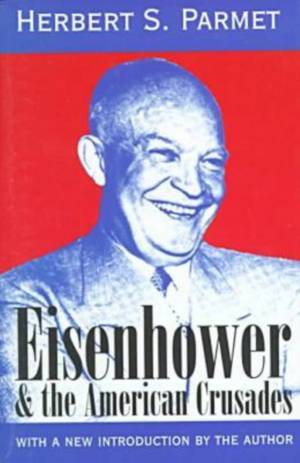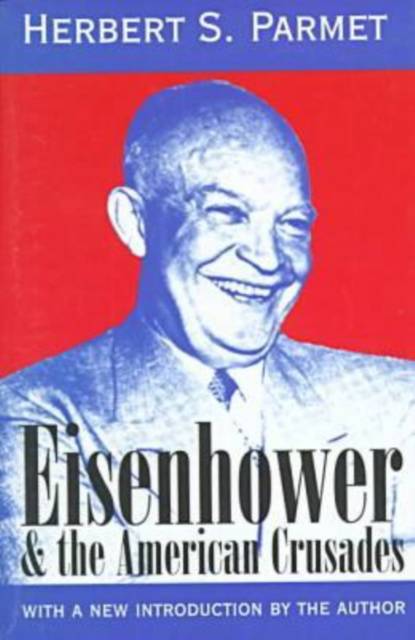
- Afhalen na 1 uur in een winkel met voorraad
- Gratis thuislevering in België vanaf € 30
- Ruim aanbod met 7 miljoen producten
- Afhalen na 1 uur in een winkel met voorraad
- Gratis thuislevering in België vanaf € 30
- Ruim aanbod met 7 miljoen producten
Zoeken
Omschrijving
Herbert S. Parmet's Eisenhower and the American Crusades is a major assessment of the American presidency during the critical period of America at mid-century. The book follows the career of General Dwight D. Eisenhower from 1952, when he decided to leave his NATO command to campaign for the presidency, to his retirement at Gettysburg nearly nine years later. His entry into politics was well-timed. A mood of conservatism was sweeping the country; surveys indicated that the majority of Americans felt it was time for a change from two decades of executive control 'by those who had permitted events to get out of hand.'Parmet based his study of the Eisenhower years on massive research, conversations with leading figures of the era, and previously unreleased documents. This wealth of material has enabled him to provide answers to questions frequently asked about the thirty-fourth president: Was Eisenhower the kind, fatherly man millions grew up to love on their television or was this an image created by a shrewd politician who knew what the country needed in a trying time?Did he choose Richard Nixon as a running mate or was Nixon forced upon him by political necessities? Was the president intimidated by the appearance of power of Joseph McCarthy, and did the Army-McCarthy hearings influence Eisenhower's decision to involve the United States in Vietnam? Was Eisenhower concerned with the lack of progress in civil rights? Was he the right man for the right time in history or was he merely postponing the major crises of the 1960s?Parmet offers a convincing refutation of the idea of the Eisenhower years as being placid or boring. 'No years that contained McCarthy and McCarthyism, a war in Korea, constant fears of nuclear annihilation, and spreading racial violence, could be so described.' For Parmet, Eisenhower was a stabilizing force in a time of conflict. He may not have been a political genius, but he knew perhaps better than anyone else around him exactly what the people wanted and how they wanted it.
Specificaties
Betrokkenen
- Auteur(s):
- Uitgeverij:
Inhoud
- Aantal bladzijden:
- 660
- Taal:
- Engels
- Reeks:
Eigenschappen
- Productcode (EAN):
- 9780765804372
- Verschijningsdatum:
- 30/06/1998
- Uitvoering:
- Paperback
- Formaat:
- Trade paperback (VS)
- Afmetingen:
- 154 mm x 230 mm
- Gewicht:
- 925 g

Alleen bij Standaard Boekhandel
+ 129 punten op je klantenkaart van Standaard Boekhandel
Beoordelingen
We publiceren alleen reviews die voldoen aan de voorwaarden voor reviews. Bekijk onze voorwaarden voor reviews.











